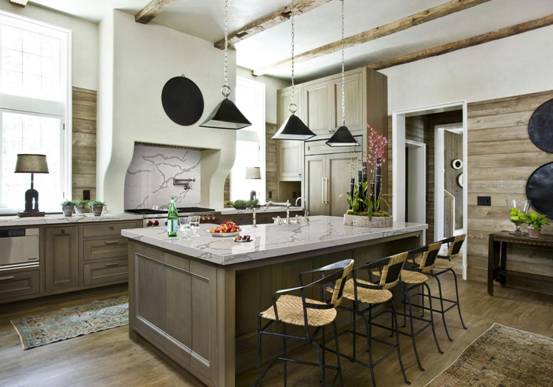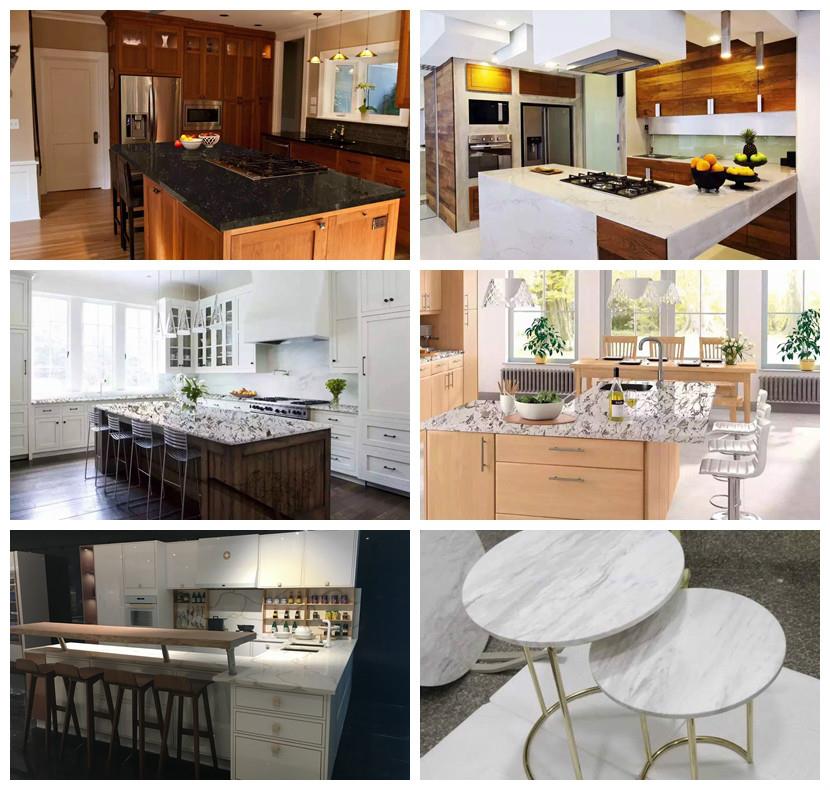
When selecting quartz countertops for your kitchen or bathroom, one of the most important decisions is choosing the right thickness. Quartz countertops are available in two standard thicknesses: 2cm (3/4 inch) and 3cm (1-1/4 inch). The thickness you choose can significantly impact the overall look, durability, and cost of your countertops. In this comprehensive guide, we'll explore the pros and cons of each thickness to help you determine the best option for your needs.
2cm quartz countertops, also known as 3/4 inch thick, are a popular choice for their sleek, minimalist appearance and cost-effectiveness. Here are some key advantages and disadvantages of 2cm quartz:
Lighter weight: 2cm countertops are easier to handle and may be suitable for DIY installations.
More economical: Since they require less material, 2cm quartz is generally more budget-friendly.
Better for intricate designs: The thinner profile allows for more detailed edge treatments, providing more flexibility in your aesthetic choices.
Less durable: 2cm quartz is more prone to chipping, cracking, or breaking, especially under heavy use or if something heavy is dropped on it.
May require additional support: 2cm countertops may need extra reinforcement along overhangs or unsupported spans, adding to the overall project cost.
Thinner appearance: The thinner profile can give a less luxurious feel compared to 3cm quartz.

3cm quartz countertops, also known as 1-1/4 inch thick, are known for their durability, strength, and high-end appearance. Here are some key advantages and disadvantages of 3cm quartz:
Increased durability: 3cm quartz is less prone to damage and can withstand heavy use and impacts better than 2cm.
No additional support required: Due to their thickness, 3cm countertops generally do not need extra reinforcement, making installation simpler.
Conveys a luxurious feel: The substantial thickness of 3cm quartz gives a more premium and high-end look to your kitchen or bathroom.
Higher cost: 3cm quartz requires more material, making it more expensive than 2cm.
Heavier weight: The increased thickness and weight of 3cm quartz can make handling and installation more challenging, potentially requiring professional assistance.
When deciding between 2cm and 3cm quartz countertops, consider the following factors:
Budget: If cost is a significant concern, 2cm quartz may be the more budget-friendly option. However, keep in mind that the overall project cost may increase if additional support is required for overhangs or unsupported spans.
Durability and Lifespan: If you prioritize durability and want your countertops to last for many years, 3cm quartz is generally the better choice. Its increased thickness makes it less prone to damage and more suitable for high-traffic areas.
Design Preferences: Consider the overall aesthetic you want to achieve. 2cm quartz offers a sleeker, more minimalist look, while 3cm quartz conveys a more substantial, luxurious feel. Think about the edge profile you prefer and how it will look with each thickness.
If you plan to install the countertops yourself or have a smaller kitchen, 2cm quartz may be easier to handle. However, if you have a larger kitchen or prefer a professional installation, 3cm quartz may be the better choice.
When choosing between 2cm and 3cm quartz countertops, there is no one-size-fits-all answer. The best thickness for your project depends on your budget, design preferences, durability needs, and installation considerations. 2cm quartz offers a sleek look and cost-effective option, while 3cm quartz provides increased durability and a luxurious feel.
Ultimately, the decision comes down to your personal preferences and the specific requirements of your project. Consult with a professional quartz stone manufacturer or retailer to understand your options and make an informed decision that you'll be happy with for years to come.